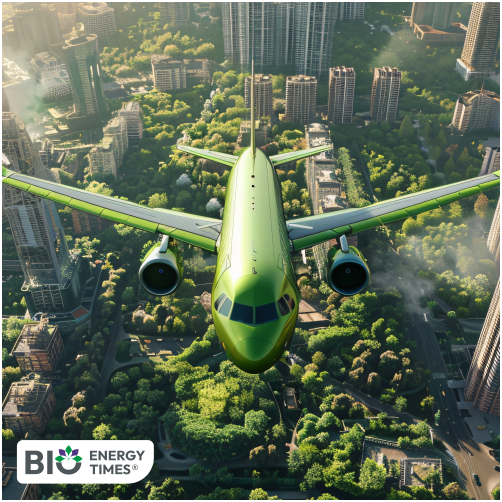Dubai: Emirates and ENOC Group have signed a Memorandum of Understanding to explore supplying Sustainable Aviation Fuel (SAF) at scale to Emirates at its Dubai hub. The agreement, signed during the Dubai Airshow, brings together the UAE’s largest airline and its main fuel supplier at a time when global aviation is under pressure to cut emissions and secure long-term access to cleaner fuels, reports Gulf News.
Under the MoU, both sides will conduct feasibility studies to determine what is required to build a dependable SAF supply chain in Dubai. The studies will look at supply infrastructure, the possibility of local production, blending needs, and the commercial factors necessary to ensure long-term sustainability. A joint steering committee will oversee the process, reflecting a coordinated effort between two major players in the UAE aviation sector.
SAF is a certified drop-in fuel that works with existing aircraft and current airport systems. It can be blended with regular jet fuel by up to 50 percent, and in its unblended form, it can reduce lifecycle emissions by as much as 80 percent. This makes it one of the most practical short-term tools available to aviation as broader decarbonisation technologies continue to evolve.
Emirates has already been involved in SAF-related work in the UAE, contributing to the General Policy for Sustainable Aviation Fuel and taking part in committees examining biofuels, hydrogen, and future aviation fuels. The policy aims to make the UAE a regional hub for cleaner fuels, with a target of producing 700 million litres of SAF annually by 2030.
The airline has carried out several SAF demonstration flights to test operational readiness. In January 2023, it operated a Boeing 777 flight using 100 percent SAF in one engine. In November 2023, it followed this with the first A380 demonstration flight using 100 percent SAF in one engine. That same month, Emirates also operated flights from Dubai International Airport using more than 315,000 gallons of blended SAF that was supplied directly through the airport’s fuel network.
During its 2024–25 financial year, Emirates obtained 7,519 tonnes of SAF at several international airports, including Amsterdam, London Heathrow, Oslo, Singapore, Paris, Lyon, and Nice. The new MoU with ENOC shifts the focus to Dubai, aiming to make SAF supply within the emirate both commercially and operationally viable.















